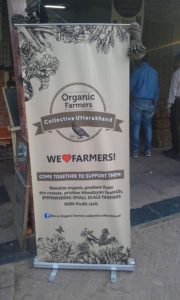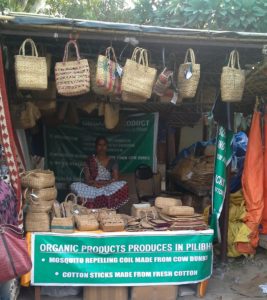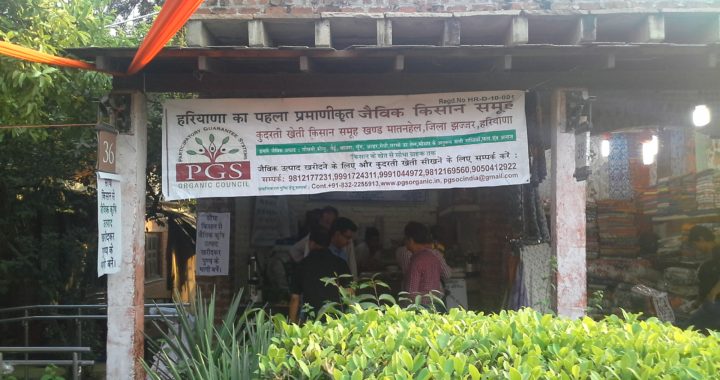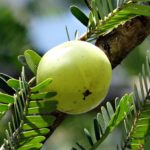We visited ‘The Women of India Festival 2016 of Organic products’ yesterday and it had one of the largest collections of organic food and other products, we have seen at one location.
There were organic farmers who had come to be a part of this fest with their produce, from almost all states of India. Visitors to this Festival have a good opportunity, not just to buy organic, but also to understand the journey of organic food, how and where it is grown, and what are the steps and difficulties faced by the farmers in growing crops organically without depending on pesticides.
At the organic food festival you can buy almost all grains, cereals, daals, oil, ghee, jaggery, herbs, spices and dry fruits you could think of. Also, there were several cereals available at the Festival which were common once, and have now been forgotten. Other organic products that were on display included natural fabrics with plant based dyes, bathing powders, coconut oil base soaps, natural cosmetics and hair care products.
In this age of chemical dependent farming, it was good to see that in each state, there are several farmers who are still holding on to the traditional way to raise food crops. And especially heartening was the fact that women are playing an important role in the traditionally male dominated field of agriculture. What they need is support from the consumer, to make it into a mass movement.
Apart from small farmers from across India, several organizations were also present which are working to protect our traditional food crops and sustain the bio-diversity which is needed to support organic agriculture.
Farmers associated with the PGS Organic Council (pgsorganic.in) mentioned that they provide free training in Organic Farming to popularize the concept, at their farm based in Jhajjhar, Haryana.
Navdanya (navdanya.org) , which is run by Dr Vandana Shiva, highlighted the importance of using traditional seeds & using millets as an alternative to common grains.
The Centre for Innovation in Science and Social Action (CISSA, cissa.co.in) is working to promote local food diversity and traditional food culture, and propagation of indigenous cattle breeds.
A number of Women’s Self Help Groups (SHG’s) are also involved in promoting organic agriculture, simultaneously providing livelihoods in the poorest districts of India.
Pradan (pradan.net) runs a Mahila Kisan Sashaktikaran Pariyojana(MKSP), which helps empower women by increasing their involvement in decision making in agriculture. Pradan was distributing a pamphlet which describes traditional formulas for pest control made from Neem leaves, Gobar, jaggery etc.
Similarly, the Deccan Development Society (ddsindia.com) is working with more than 2000 women farmers who cultivate millets, pulses, oil seeds & more, in a completely organic way.
 Avani (avani-kumaon.org), which is working with rural artisans in the Kumaon region in Uttarakhand, showcased their hand spun fabrics, dyed with plant based pigments. While Avani works with both men & women, nearly 85% of their contributors are women.
Avani (avani-kumaon.org), which is working with rural artisans in the Kumaon region in Uttarakhand, showcased their hand spun fabrics, dyed with plant based pigments. While Avani works with both men & women, nearly 85% of their contributors are women.
Going Organic can help serve many purposes. Using organic food, we can avoid consuming pesticide laden food, and at the same time prevent ecological destruction through spread of toxic chemicals in the soil and water. By using Organic, we can also support small farmers, and women’s Self-Help Groups (SHG’s), helping to increase employment in the poorest districts .
The “Women of India Festival 2016 of Organic Products” runs till 23rd Oct at Delhi Haat , opposite INA market (within walking distance from INA Metro Station) and is a must go for people who believe in a healthy and sustainable lifestyle.









